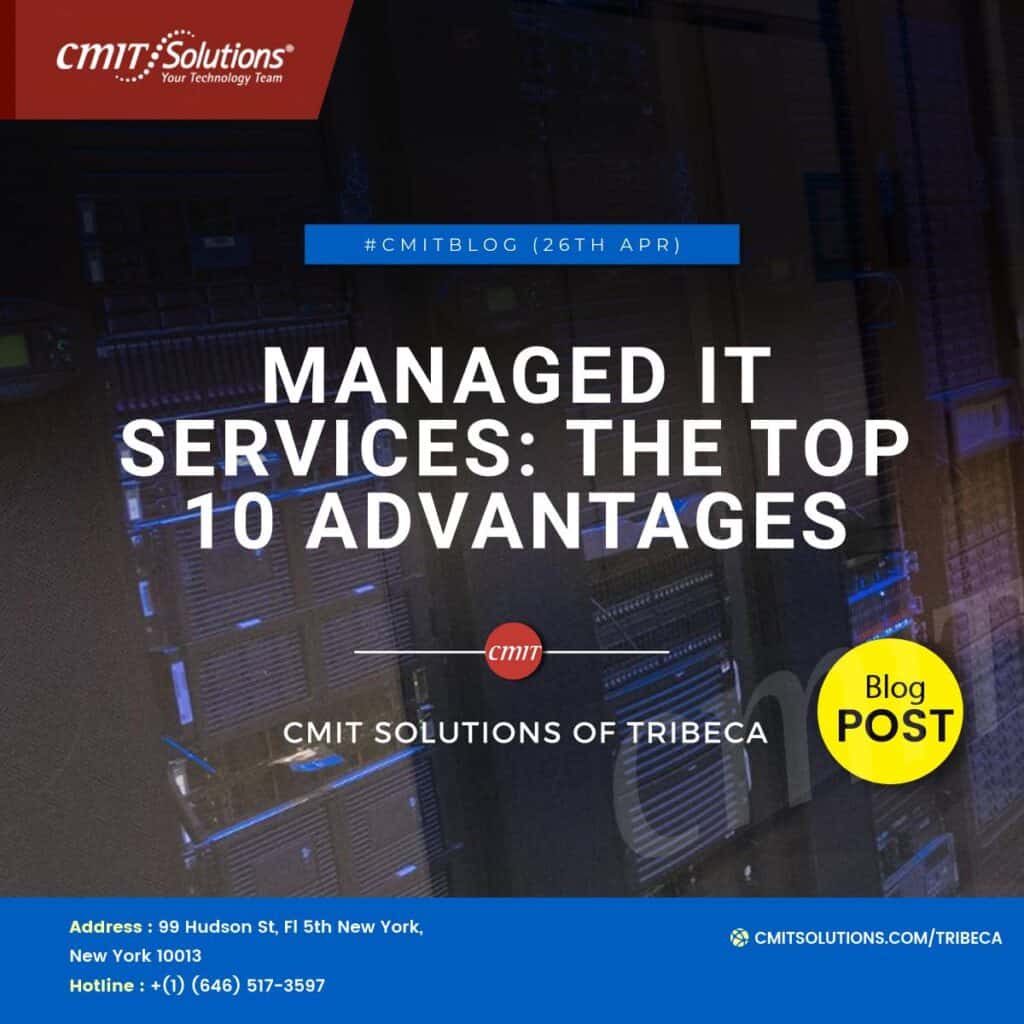The IT sector has drastically transformed in the past few years. Organizations are now more competitive than ever because of the new technologies.
Many small and mid-sized companies lack the resources to provide company-wide training in various IT subjects related to their business, which creates a competitive disadvantage. To level the playing field, they often turn to managed IT services providers.
Managed IT Services – What is it?
Managed IT services or sometimes called outsourced IT, are third-party services provided by other companies. They usually handle infrastructure, IT, and other technical support to organizations. Managed service providers may also be referred to as MSPs.
MSPs offer a broad spectrum of services ranging from cybersecurity and VoIP solutions to backup and data recovery. These MSPs can add tremendous value to businesses that have insufficient budgets or those are understaffed as they can get the bulk of the work done at a nominal price and without much hassle.
Regardless of the size, an MSP can help with even the most complex IT challenges that may arise. With in-house experts who are both knowledgeable and highly experienced, no task will be a challenge for these MSPs. They usually provide a wide range of services and this can sometimes be confusing so it is essential to know what services MSPs offer along with what they mean in order to find the right one for your business.
We’re here to answer some questions you might have.
Managed IT Services – Different Types
It is important to know what kind of MSPs and services are available for your business. Even if a provider does not offer the service you are looking for, it is still good to know what it could potentially mean to your business.
-
Managed Infrastructure and Networks
MSPs generally take on the entire network aspect in this type of service. This includes WAPs, LAN, and all the different connections required to run your business effectively. Some MSPs also manage storage ad backup options.
-
Managed Security
This is an all-inclusive remote service for the security infrastructure of a business. It handles everything from anti-malware solutions and BDR to keeping everything updated in real time.
-
Managed Support Services
This service is quite common with most managed service providers. All services related to IT help are covered under this. From basic troubleshooting resolutions to handling advanced issues, everything comes under this.
-
Managed Cloud Infrastructure
Another popular service, managed cloud service providers generally offer virtualization services to cover a variety of computing needs, from apps, software, and operating systems along with other services like storage, computing, IT, and network.
-
Managed SaaS (Software as a Service)
This is a software platform offered by MSPs that is typically a subscription-based service. Companies may offer different types of services, such as Office 365, universal communication software, and anti-virus software.
-
Managed Mobile and Wireless Computing
Wireless connections can be set up by an MSP, instead of sinking in unnecessary capital to create this. This service is useful for those who would like to avoid the added cost of setting up a network and for organizations that previously invested in setting up their own internal networks.
-
Managed Communication Services
Such MSPs offer a wide range of communication services, like messaging software, VoIP, and data. In some instances, MSPs can operate as a call center for businesses that need outsourced customer service.
-
Data Analytics
Businesses that want to manage and monitor their data will want to use an analytics service. With this, you can choose what specific trends you want the program to identify and even create a road map to help improve your company’s performance.
Conclusion
You can see the diverse kinds of managed services. This is great for businesses because it can cover every area of IT. No matter the size or need, an MSP has the answer that fits your budget and will fulfill your needs.
The benefit of managed IT services is that you can help fill employment gaps. The benefits go beyond this scope, though. The advantage of using an MSP is they will have a breadth of experience across different business sectors. MSPs have a range of expertise and can deploy solutions across various aspects of your business, meaning all your performance levels can rise through the use of their services.
Companies can reduce costs, and be more efficient when they hire a managed IT provider. The managed IT service providers proactively address IT problems before they have time to escalate into bigger problems that are difficult or sometimes impossible to fix. If you are having IT problems, it’s worth looking into an MSP. There are a lot of options and they can be flexible, so even if you aren’t as big of a network as Amazon, you can get the best service for your business needs.







